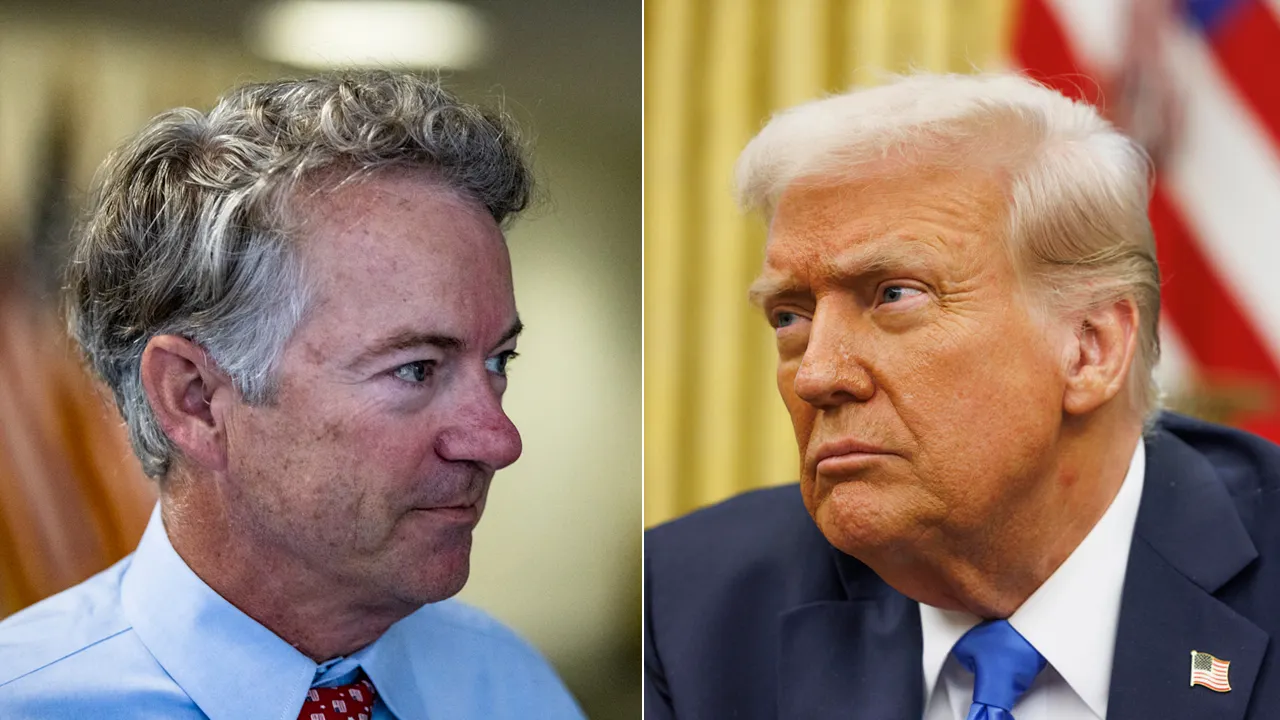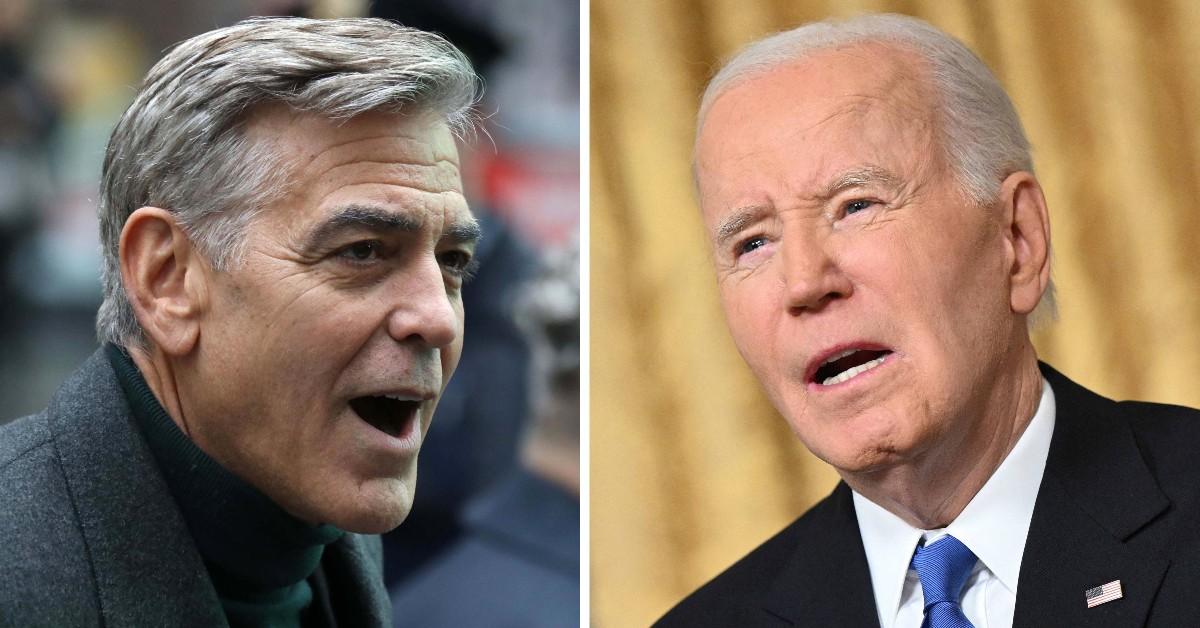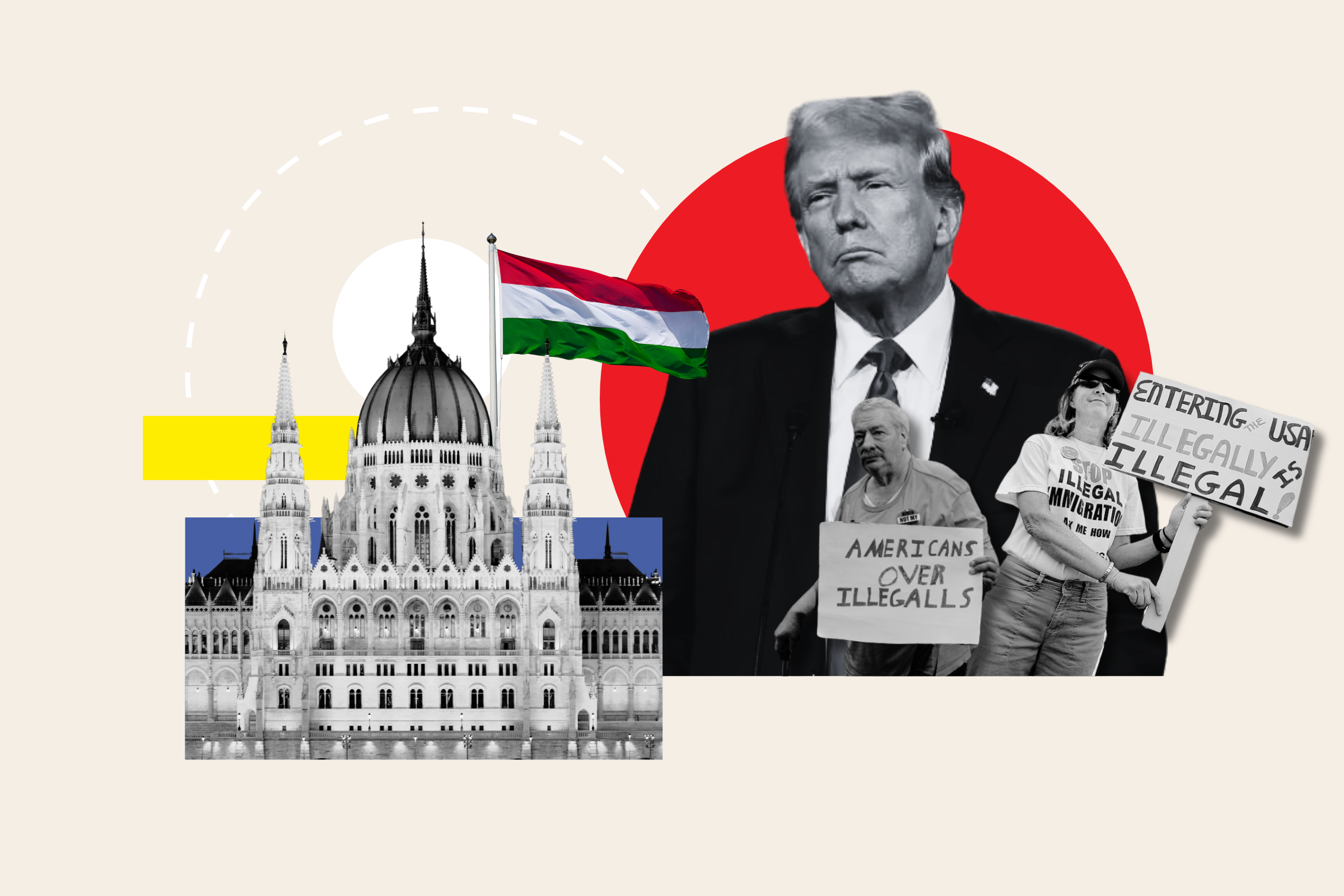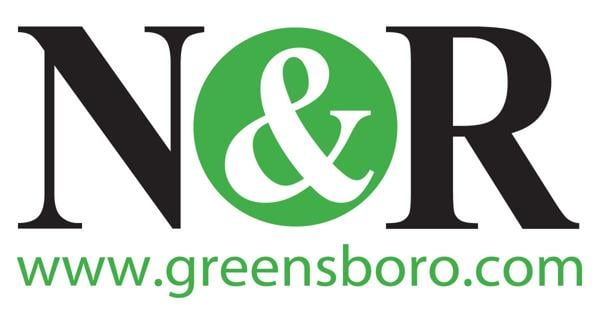Hungarian Foreign Minister Péter Szijjártó has nothing but praise for U.S. President Donald Trump, having developed a strong relationship during the first Trump administration and seeing only positives from the initial month of Trump’s second term. Touting Hungary as “kind of Trump before Trump,” Szijjártó sees the two countries increasingly aligned on policy and worldview.
The Context
Trump’s victory in the 2016 U.S. presidential election took Democrats and most European leaders by surprise. The Obama years had provided a sense of political inertia that led to many believing Hillary Clinton’s victory in that contest was all but assured. For the nation of Hungary, however, the developments likely seemed all too familiar.
Hungarian Prime Minister Viktor Orbán, nicknamed the “strongman of Europe,” had previously held the post from 1998 to 2002, leading a coalition of his right-wing Fidesz party and the Christian Democratic People’s Party (KDNP). Orbán’s allies denounced the results of the 2002 election, claiming election fraud as the Hungarian Socialist Party (MSZP) formed a coalition with the Alliance of Free Democrats–Hungarian Liberal Party. Most rejected those claims, but Orbán insisted the election had been stolen.
He returned to power in 2010, however, riding a landslide victory due to supreme dissatisfaction with the incumbent party. The likes of Reuters and Politico reported that Orbán had received a “mandate” due to his overwhelming victory, with which he passed a new constitution and fundamentally rewrote the political fabric of his country.
Orbán has remained in power since, winning the elections of 2014, 2018 and 2022, thanks in part to new election laws Fidesz-KDNP introduced with the new constitution. Each victory brings fresh criticism and allegations from foreign powers, but the Orbán administration forges ahead.
Hungary even held the presidency of the Council of the European Union from July to December 2024, with only minor alarm from other member states when Orbán greeted the ceremonial position with a serious zeal to try to spur change on the continent. He made unannounced visits to Ukrainian President Volodymyr Zelensky and Russian President Vladimir Putin, seeking some common ground and a resolution to the invasion of Ukraine.
After last year’s staggering change in political fortunes around the globe, in which incumbents in every major political race suffered a loss, the right wing of Europe made significant gains. With Trump back in office, Hungary is seeing the political landscape shifting more to suit its views and ambitions.
Photo Illustration by Newsweek/Getty Images
What To Know
Newsweek spoke with Szijjártó in an exclusive interview at the United Nations on Tuesday. The Hungarian foreign minister has held his post since 2014, making him an integral part of Orbán’s administration and the international face for Hungary in many cases—most notably, at the U.N. The interview has been edited for brevity and clarity.
Q: Obviously the thing that everyone’s talking about right now is Ukraine peace talks. Do you believe Europe should be more involved?
A: I don’t understand why European leaders are surprised that they are not around the table. Why would they be? European leaders have messed it up in the last three years. The policy of European politicians was a total failure when it comes to this war. Instead of isolating this war, instead of cooling down the tensions, they have globalized this war. They have fueled the conflict, causing the conflict [to go] on now for three years, and these are peace negotiations. Why would pro-war politicians be invited? We have made it very clear in the last three years on many occasions for which we had been under tremendous attack, obviously, that only direct U.S.-Russian talks can end this war.
We are very happy that President Trump and President Putin took the time to talk to each other. We are very happy that the delegations led by Secretary [Marco] Rubio and Minister [Sergey] Lavrov have met, and it seems they had some good meeting, and we cross [our] fingers for a U.S.-Russia, holistic agreement on how to improve the relationship between the two countries, because we are a country which was occupied by the Communist dictatorship. We know how it feels to live in the wrong bloc. We know how it feels to be a loser of global political strategy based on blocs, so we don’t want that anymore. Good U.S.-Russia relations is the best possible news we can get.
Q: Do you view the U.S. as sliding more towards Christian policies in general?
A: Oh, absolutely. President Trump and other government officials speak about it openly. Pro-family, pro-peace, anti-migration, anti-gender. These are the core elements of our policies as well, for which we had been under tremendous attack in the recent years. Imagine: We have been under financial sanctions of the European Union, partly because we passed the law in Parliament, which forbids LGBT organizations from entering schools and kindergartens.
We have made it very clear in law that the exclusive right of sexual education of kids goes with the parents. We have made it clear in the Constitution that father is a man, mother is a woman. We were sick and tired of fighting narratives which have neglected the reality that when a human being is born, he or she can be male or female, period, nothing else. So, we are happy that common sense came back with President Trump, and the Western world has received a new leader who is a patriotic, sovereign, commonsense person launching a freedom fight against this global dictatorship of international liberal mainstream.
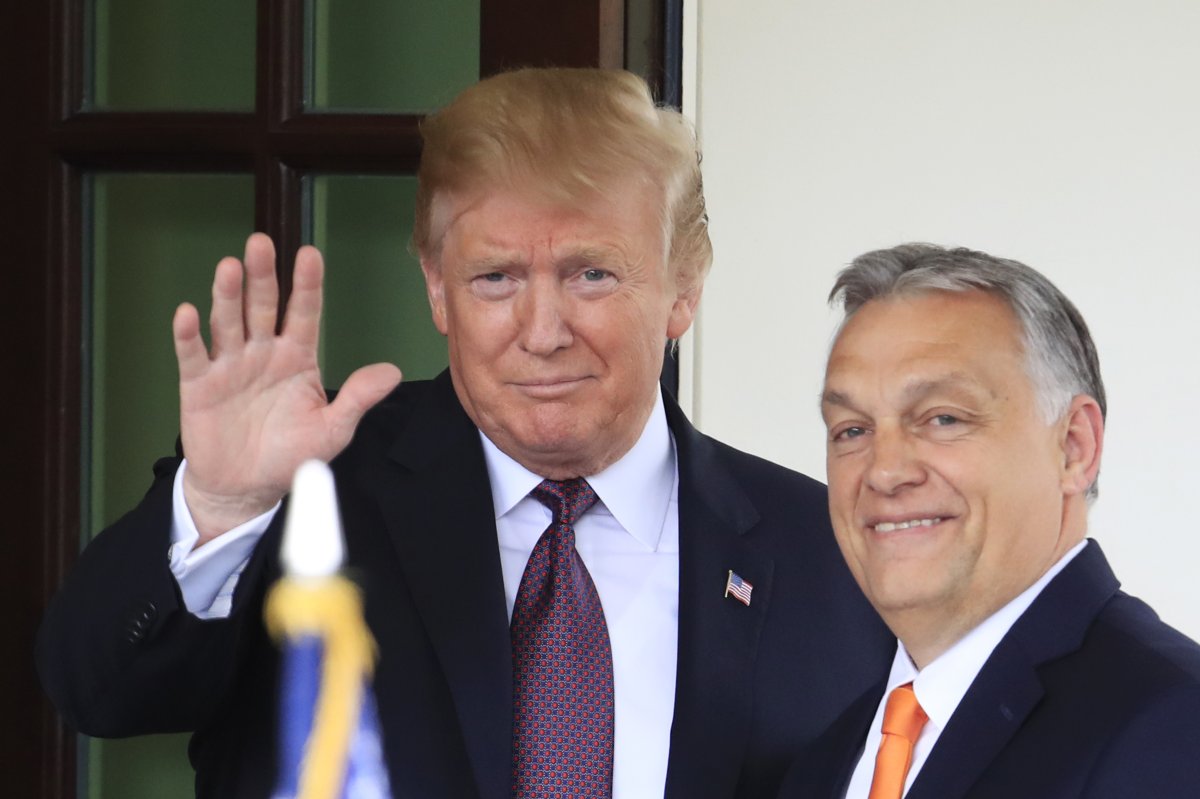
AP Photo/Manuel Balce Ceneta, File
Q: One of the things that we have in the U.S. is what we call the division of church and state. What do you say when people argue that sliding towards a Christian policy violates that?
A: No, no, I totally disagree with that, because a normal cooperation between state and church, respecting the sovereignty of both, is absolutely useful in Hungary. We respect the sovereignty of church. Church does not interfere [with] state issues, but we cooperate when it comes to operating schools, operating social institutions, health institutions, cultural institutions. The church can give a huge help to a fine operation of the state or the country or the nation itself.
Q: Do you worry that potentially gets in the way of multiculturalism, especially with the movement of Muslim populations towards Europe and America? Do you worry that embracing a more overtly Christian motivation potentially creates conflict?
A: I’m absolutely in favor of freedom of religion, but I also do believe that if someone has a desire to live somewhere else, then that given person must respect the culture, the environment, the laws, the regulations and the way of living of the people there. Look at what insane things [are] happening in Europe, because of migrants. In some places, the Christian symbols have been banned. What kind of behavior is that? So, I do believe that freedom of religion is a must, but once you go to another country, you have to respect the rules, regulations or way of living.
Q: Poland recently took over the presidency [of Europe], ending your tenure. What do you view as successes during that time, and do you have any regrets from that time?
A: We have been doing the same things as President Trump has been doing. We were kind of Trump before Trump, not only in that, but in our conservative policies, in our Christian approach, in our pro-peace, pro-family, anti-migration. That’s why we’re so happy that Trump is there now.
When it comes to, when it comes to the EU presidency, it was very important to enlarge the European Union towards the Western Balkans. It is great that both Montenegro and Albania have made significant steps during our presidency to become members. We had a clear goal to give the chance to improve somehow the competitiveness of the European Union, which has been declining very, very badly.
Q: Getting back to Trump, how do you rate the first month of the Trump presidency?
A: A plus, no question. The best thing you’ve seen so far: He has cut the channels of financing when it comes to USAID [United States Agency for International Development]. USAID was basically the organization to implement the political strategy aiming at interfering [with] domestic issues of other countries, blackmailing, judging, imposing policies on countries which were influencing elections, influencing the expression of the democratic will of the people. I think that cutting these channels, President Trump made a huge service to the world, because the world is becoming a better place, because patriotic governments will not be under such pressure. It’s a totally new era.
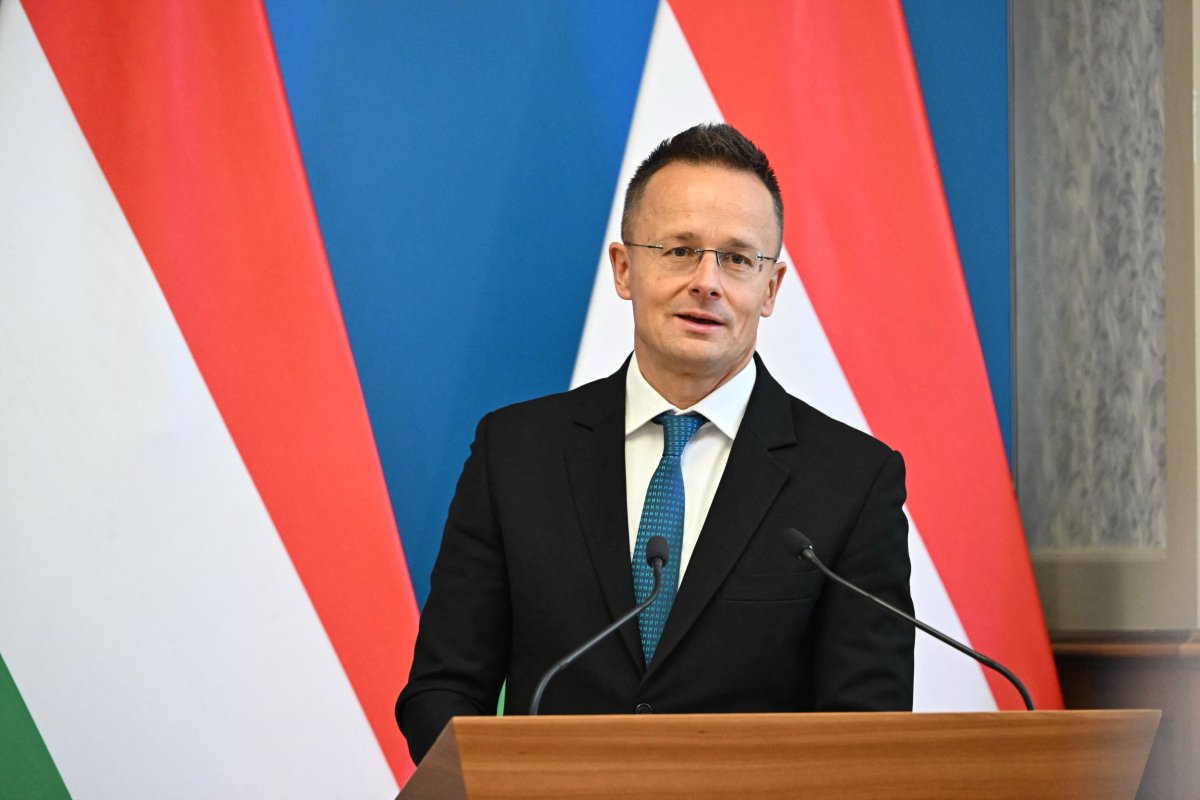
Attila Kisbenedek/AFP via Getty Images
Q: What do you say to concerns people have that even if you’re rolling back some of that influence, you’re also undermining programs that have been helpful in certain parts of the developing world?
A: Look, there are 90 days for review. If there are programs which are really useful, which are not serving [the] goal of interference, the goal of destabilization, the goal of putting pressure on patriotic governments, then, of course, there will be time for revision, and the proper decisions can be made.
Q: So what lessons do you think Trump can take from your president?
A: We are small, while the U.S. is big, so it would not be appropriate and would be totally [unrealistic] to say that he could learn anything from us. What I can say is the following: We have been enjoying a great relationship. To the contrary, the former administration was very hostile to us. They really were hostile to us, and now we have to rebuild this relationship.
But the deeper you start something from, the more spectacular it will be, and I see the chance of making something very spectacular together. The biggest ever R&D-driven investment in Hungary has been announced last week by an American company. Today, we signed an agreement on cooperation on space research with Voyager technologies. We hope that we can empower the agreement on avoiding global taxation. We have a similar approach to the global minimum tax as President Trump. The former administration terminated the bilateral tax treaty with us because we were blocking the implementation of global minimum tax.
Q: Hungary’s inflation is about in line with the rest of the EU at 2.5 to 2.7, but the U.S. is currently above its own projections. Do you worry that this is going to drive up inflation in Europe? And if so, what steps are you taking to deal with that?
A: We are a mid-sized, landlocked country with no energy resources. So, for us, export is determining. If export goes well, economy goes well. If export suffers or struggles, the whole economy struggles. Therefore, for us, an international trade with the least possible obstacles, be it financial, political, regulatory, whatever, is better.
Therefore, we hope that President Trump will continue to be a deal-maker as he used to be during his first term. If someone is able to make good deals with other big stakeholders of global economy and global politics, that is President Trump. Obviously, we hope for that. What I feel ashamed about is the behavior of the European leaders. I told them why we do not come forward with some proposals.
We understand that there [are] tariffs of 10 percent when it comes to importing cars to [the] European Union from the U.S., while there’s 2.5 percent on the other direction. Why don’t we [propose] decreasing our customs towards the U.S. on automotive, and then we will be on the same level, providing the chance for President Trump not to increase. When you come forward with these proposals to the European Commission, they are simply paralyzed.
And I tell you why they are paralyzed: They are paralyzed because they all know what they have said on President Trump in the last eight years, and they know that President Trump remembers, and they are not brave enough to stand up. They used to be involved in a competition of who says the most nasty things on President Trump in order to satisfy the expectations of liberal media on both sides of the ocean. Now this is the outcome.
